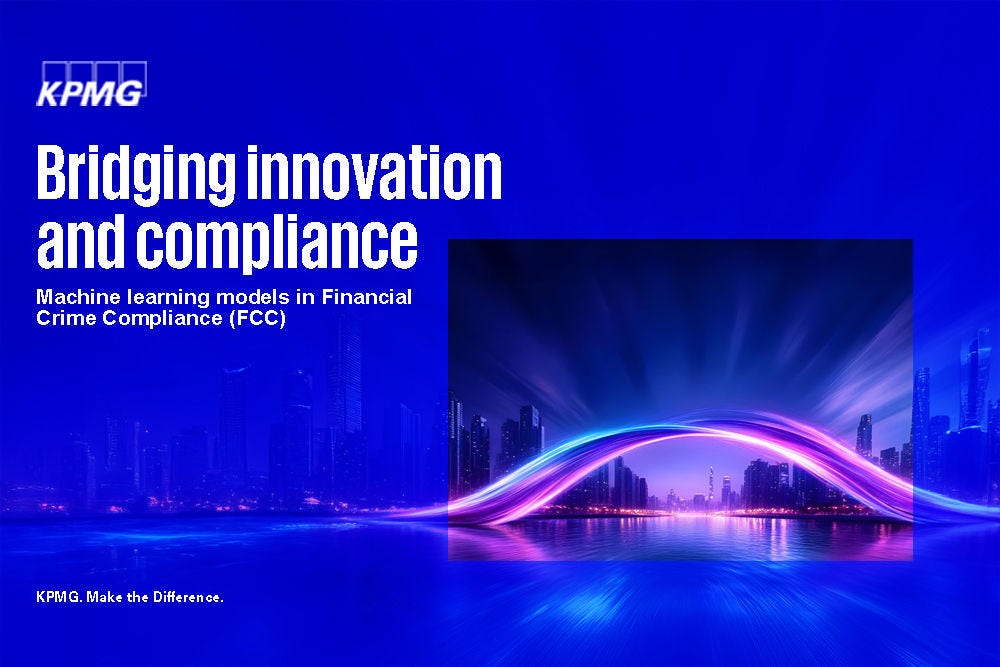Confronted by the surge in sophisticated financial crime and rising customer expectations, banking industry stand at a ‘to be or not to be’ philosophy for adopting Artificial Intelligence (AI) model. This adoption may no longer be optional-it’s existential. As per 2025 World Economic Forum white paper, financial services have spent ~ USD35 billion on AI till 2023, with projected investments across banking, insurance, capital markets and payment business expected to reach USD97 billion by 2027.
FCC is a cornerstone function for banks, encompassing a broad range of services designed to uphold the integrity of financial system and prevent its exploitation for illicit purposes. At the very heart of FCC lies Anti-Money Laundering (AML), a critical pillar dedicated to detecting and preventing the process by which illegally obtained funds are disguised as legitimate income. It involves a structured approach to detect and prevent the movement of illicit funds through financial systems. Machine learning models are emerging as transformative solutions, offering a powerful paradigm shift in how AML measures are undertaken. By leveraging advanced algorithms and computational power, these models can address the fundamental limitations of existing processes and offer numerous advantages.
While the power of machine learning models in AML framework is undeniable, leveraging these sophisticated models comes with a critical responsibility: the absolute necessity of independent validation. Given the potential ‘black box’ nature of some advanced algorithms, ensuring their accuracy, fairness, reliability, and robustness is paramount. Independent validation is not merely a leading practice; it is increasingly a stringent regulatory requirement. Regulatory bodies recognise the inherent risks associated with reliance on complex, data-driven models for critical financial crime detection and risk management decisions.
This is precisely why RBI has recommended a framework for responsible and ethical enablement of AI in financial sector, and guidelines like SS 1/23 (Model risk management principles for banks) issued by Prudential Regulation Authority (PRA) place a heavy emphasis on robust model risk management. These regulations unequivocally highlight the importance of validation requirements.
As financial institutions increasingly deploy models for financial crime compliance (FCC), model validation must evolve to reflect the unique risk dynamics of this domain. Unlike prudential models, FCC models require a nuanced balance between model risk-the potential for inaccurate or biased outputs-and financial crime risk - the threat of undetected illicit activity. Independent validators must assess whether the risk of deploying a sub-optimal model is outweighed by the risk of not deploying a model that could enhance detection capabilities. The independent validation procedure for models is a rigorous, multi-faceted process designed to thoroughly assess a model's effectiveness, reliability, and compliance.
By adhering to the stringent regulatory guidelines and by systematically validating the models, banks can ensure their cutting-edge technology is not only highly effective but also trustworthy, transparent, unbiased, and fully compliant. This dual approach - boldly embracing innovation while rigorously upholding principles of governance, oversight, and independent scrutiny - is the definitive key to truly unmasking the shadows of illicit finance and building a more secure and integrity-driven global financial system.
Key highlights of the report:
Through this report, KPMG in India aims to support organisations, governments, and society at large in adoption of models of financial crime compliance. We hope this will foster discussions around usage of models and importance of independent validation to assess model's effectiveness, reliability, and compliance.
This report is a must-read for business leaders, compliance officers, risk managers, data scientists, and anyone involved in financial crime prevention and regulatory technology.
Bridging innovation and compliance - Machine learning models in Financial Crime Compliance (FCC)
Machine learning isn’t just enhancing compliance-it’s integrating innovation with integrity in FinCrime

Key Contact
How can KPMG in India help
Access our latest insights on Apple or Android devices





